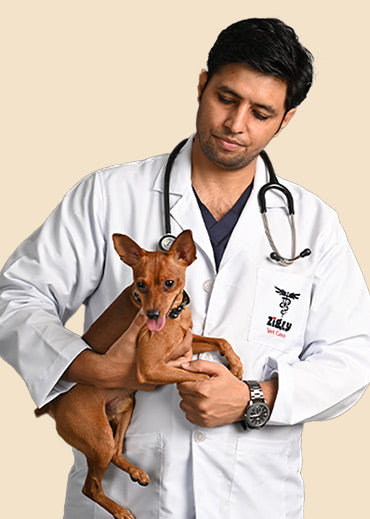After the harshness of the summer season, the monsoon brings a bucket full of joy to our sweaty moods. While it is symbolic of lush greenery, yummy snacks, and romantic drives, it also brings challenges for pet parents. During the rainy season, pets are more susceptible to skin infections, indigestion, mood swings, and other health issues.
However, these challenges can be managed with some precautionary measures and lots of woofy love. Here’s how you can take care of your fur babies during the monsoon season.
Prep-Up with a Furry Monsoon Care Kit
- Dog Raincoat: An expected rain shower is a possibility during the monsoon season. A raincoat will keep the fur protected irrespective of it. Hence, it is a good idea to invest in one.
- Reflective Harnesses & Leashes: Poor visibility is a thing during the monsoon season. To avoid sudden mishaps, get your furry reflective harness and leashes. Make sure these are dry when your pooch puts them on.
- Pee Pad: Rain showers can interrupt your pooch’s walking schedule. That does not mean he won’t want to go ‘pee-pee’. Keep a pee pad indoors for those ‘oopsie’ moments.
- Tick & Flea Repellents: Walking through wet grass or leaves is a direct invitation to ticks and fleas. To avoid this, spray your fur baby’s paws (paw cream) and coat them with a good-quality tick and flea repellent spray.
- Dog Shoes: While walking through damp streets, the paws of our furries can come in contact with stuff like the infected urine of other animals. This can lead to diseases like leptospirosis. Hence, invest in waterproof dog shoes.
After-Walk Clean-Up Essentials
-
Large mat for the dog to stand on
-
Microfiber towel for drying the coat
-
Pet wipes for cleaning paws
-
Paw sanitizer
-
Dog brush for grooming and checking ticks/fleas
For Happier & Healthier Woofs!
-
Groom and deworm regularly to avoid bacterial infections.
-
Use boiled drinking water to protect against digestive ailments.
-
Keep your pet indoors as much as possible; dry their coat immediately after outdoor exposure.
-
Provide a warm bed and blanket since floors get cold. Use pet mats around the house.
-
Challenge your pet’s mind with toys to prevent boredom and destructive behavior.
-
Feed a vet-prescribed diet to support digestive health.
Common Diseases or Illnesses To Watch Out For
Skin Infestation by Ticks & Fleas
-
Get regular pet grooming done.
-
Avoid damp areas.
-
Use tick and flea repellents.
Diarrhea
Common due to indigestion during monsoon.
Indicators:
-
Loose motion
-
Loss of appetite
-
Unexplained weight loss
-
Stomachache
What to do:
-
Feed plain curd.
-
Stick to vet-prescribed diets.
Respiratory Disorders
Monsoon colds can lead to bacterial or fungal infections such as pneumonia.
Indicators:
-
Runny nose
-
Lethargy
-
Loss of appetite
-
Difficulty breathing
What to do:
-
Keep your pet dry.
-
Avoid walking through dense or damp areas.
-
Blow-dry the coat after baths.
FAQs
Q1: How often should I groom my pet during monsoon?
A1: Regular grooming at least once a week is recommended to keep ticks, fleas, and infections at bay.
Q2: Can raincoats prevent all skin infections?
A2: Raincoats help keep your pet dry but regular grooming and tick/flea prevention are also necessary.
Q3: What is the best diet for pets during the monsoon?
A3: Vet-prescribed diets rich in nutrients and easy to digest are ideal, along with boiled water.
Q4: How can I prevent respiratory issues in my pet during the rainy season?
A4: Keep your pet dry, avoid damp areas, and ensure proper drying after baths.
Q5: Are pee pads effective for indoor urination?
A5: Yes, they are a convenient option during heavy rains when outdoor walks may be limited.




